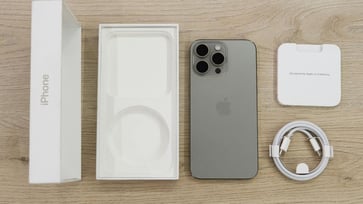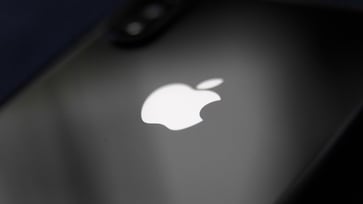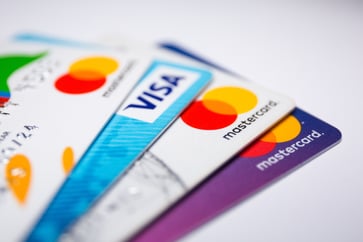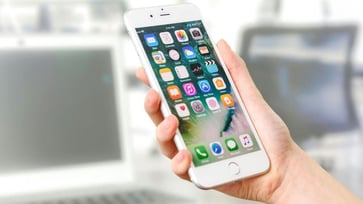Is antivirus protection necessary in addition to a VPN?
Comprehensive cybersecurity requires the use of both tools.

With the increasing complexity of cyber threats, many individuals, including Keith from Lisbon, Iowa, are looking for ways to protect their online presence. One common question is whether having a VPN is enough or if an antivirus app is also necessary.
Yes, while a VPN offers essential privacy and security, it does not safeguard your device from malware, viruses, or other cyber threats. To achieve comprehensive digital security, it is necessary to use both a VPN and other security measures that protect against malicious software and viruses.

Why you need both a VPN and antivirus
It is essential to comprehend the unique yet complementary functions of VPNs and antivirus software in safeguarding your digital existence to ensure comprehensive online security.
Virtual private network
Your online privacy and security are safeguarded by a VPN, which functions through:
By encrypting your internet connection, you make it nearly impossible for hackers, ISPs, or other third parties to intercept and read your data.
A VPN enables you to browse the internet anonymously by concealing your true IP address, making it more difficult for websites and advertisers to monitor your online activities.
VPNs enable you to bypass geo-restrictions and access content that may be blocked in your area, providing you with greater online freedom.

Antivirus software
Antivirus software safeguards your device by detecting and eliminating malicious software.
Antivirus software scans and removes malicious software, including viruses, trojans, and spyware, from your device.
Continuous monitoring by modern antivirus programs prevents malware from infecting your device in real-time.
Antivirus software often includes tools to safeguard against phishing attacks, such as blocking malicious websites and issuing warnings.

How VPNs and antivirus complement each other
Antivirus software and VPNs are two distinct but complementary components of your digital security strategy.
VPNs safeguard your online privacy by encrypting your internet traffic and masking your IP address. This makes it harder for hackers and third parties to intercept your data, especially on public Wi-Fi. Additionally, VPNs can help reduce the exposure of your browsing habits to trackers that may use this data maliciously. With a VPN, you can securely access your email accounts from anywhere, even in areas with restrictive internet policies. For the best VPN software, check out my expert review of the top VPNs for browsing the web privately on your Windows, Mac, Android, and iOS devices.
Antivirus software is crucial for safeguarding your devices from malware, viruses, and other security threats. It actively guards against threats that could compromise your device's security, regardless of how they reach your system. To ensure the software remains effective, it's important to regularly update it to detect and remove the latest threats.
To safeguard yourself from malicious links and protect your private information, it is recommended to install antivirus software on all your devices. This software can also alert you to phishing emails and ransomware scams, keeping your personal information and digital assets safe. If you're looking for the best antivirus protection for your Windows, Mac, Android, and iOS devices in 2024, check out my top picks.
A strong defense system can be created by using both a VPN and antivirus software to protect both online activities and your device.

Kurt’s key takeaways
Cybersecurity is not just about using a VPN or antivirus; it's about utilizing both to create a comprehensive defense against online threats. By combining these two potent tools, you can experience a safer, more secure, and more private online journey.
What are your biggest cybersecurity concerns, and how can we assist you in addressing them? Please communicate with us through Cyberguy.com/Contact.
To receive my tech tips and security alerts, sign up for my free CyberGuy Report Newsletter at Cyberguy.com/Newsletter.
Follow Kurt on his social channels:
Answers to the most asked CyberGuy questions:
New from Kurt:
- Kurt's Holiday Deals extended
Copyright 2024 CyberGuy.com. All rights reserved.
tech

15 things to do or try first when you get a new iPhone: 1. Set up your phone with your personal information and preferences. 2. Install your favorite apps and games. 3. Connect your phone to your Wi-Fi network and other devices. 4. Take a few photos and test out the camera. 5. Set up your email and other accounts. 6. Enable security features like Touch ID or Face ID. 7. Customize your phone's settings and appearance. 8. Explore the built-in features and apps on your phone. 9. Connect with friends and family on social media. 10. Set up reminders and alarms. 11. Use the phone's built-in voice assistant. 12. Download and install new apps from the App Store. 13. Set up your phone's screen time and parental controls. 14. Enable automatic updates for your apps and software. 15. Back up your important data to cloud storage or an external hard drive.
techYou might also like
- Five top home inventory apps to safeguard your property during an emergency
- Your smart home gadgets will soon receive a new security seal of approval.
- This year, save time, privacy, and money with these 10 tech upgrades.
- Is your Windows 11 PC frequently restarting? Let's resolve this annoying issue.
- Sony's entry into the electric vehicle market is a surprising move.


















